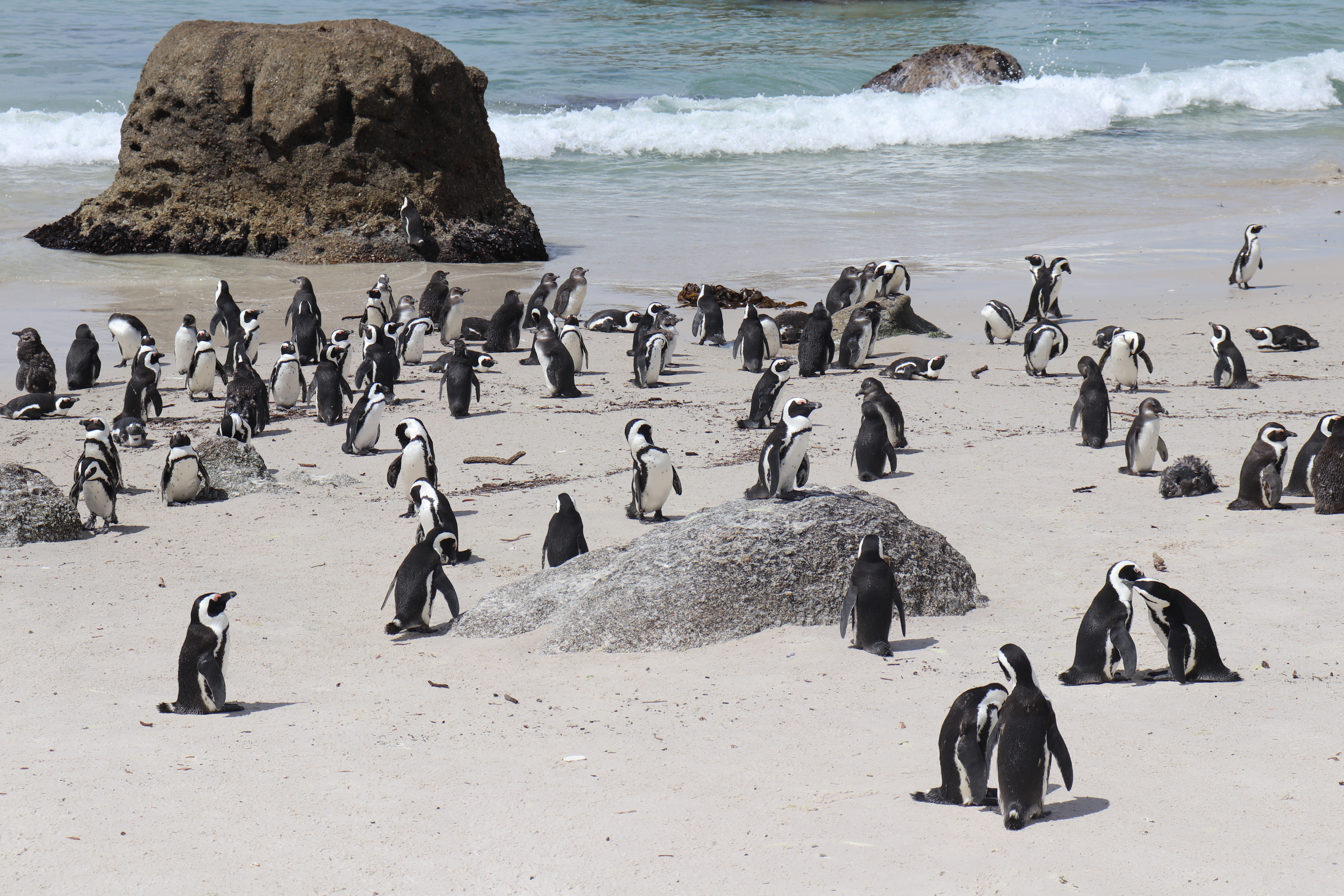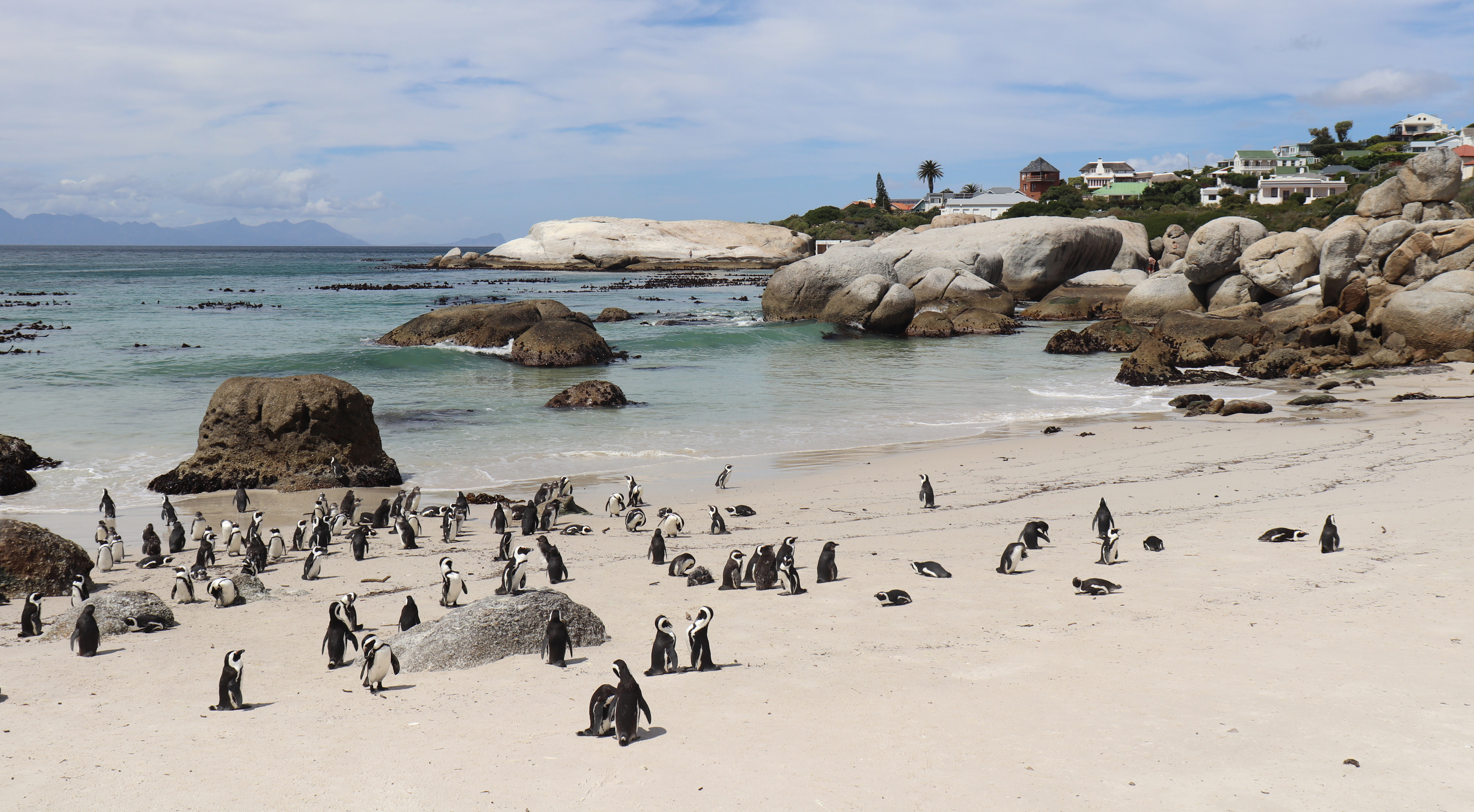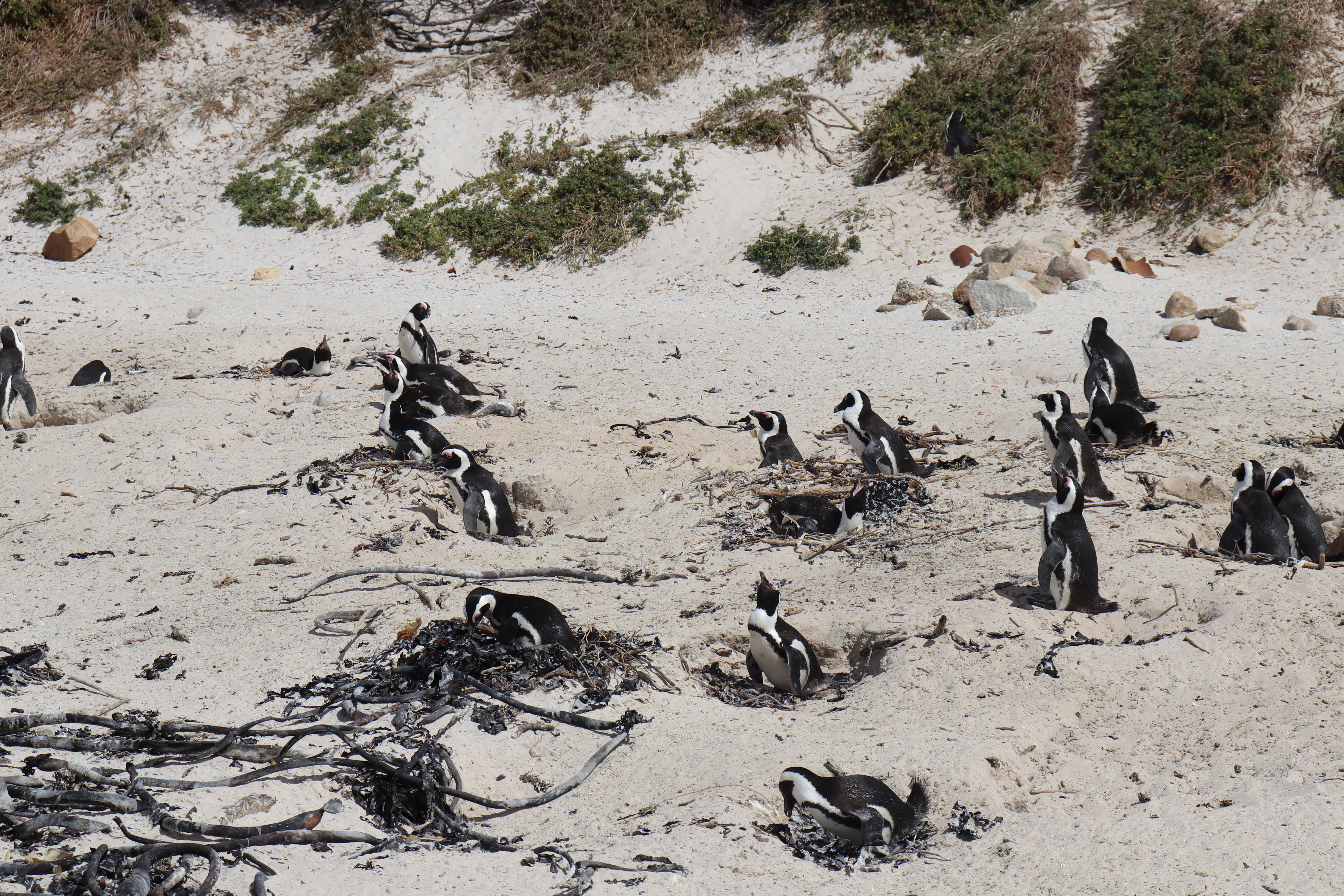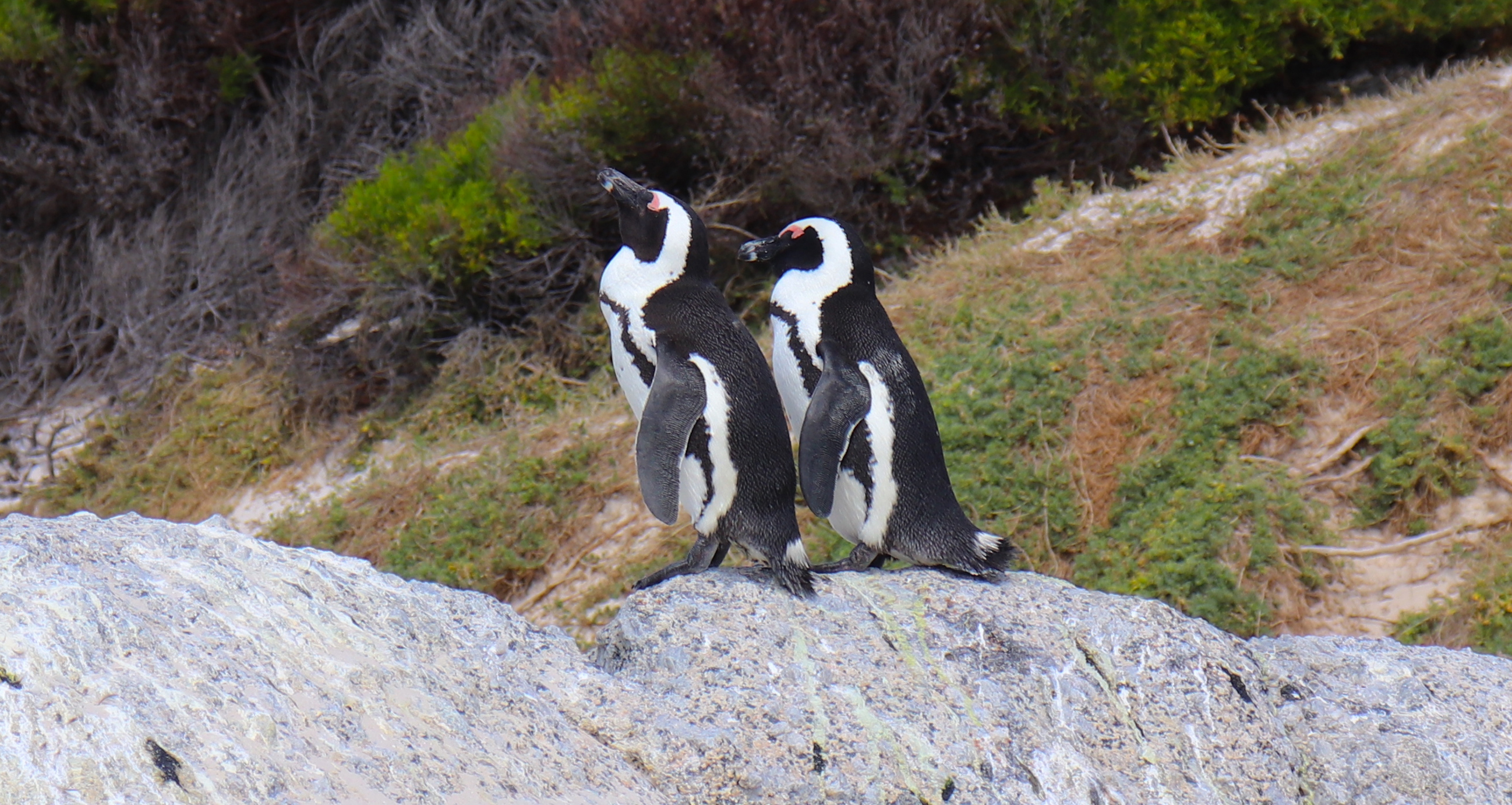In a desperate bid to save the endangered African penguin from extinction, local conservation bodies have initiated legal action against Forestry, Fisheries and Environment Minister Barbara Creecy. The lawsuit challenges the minister’s failure to implement biologically meaningful fishery closures around African Penguin breeding areas.
The application, brought by the Biodiversity Law Centre (BLC), representing BirdLife South Africa (BLSA) and the Southern African Foundation for the Conservation of Coastal Birds (Sanccob), seeks the review and setting aside of the minister’s decision on 4 August 2023 regarding the closures to fishing around key African penguin breeding colonies, instead of what the applicants describe as biologically meaningful closures.
The application is being brought against Creecy; the deputy director-general of fisheries management in the Department of Forestry, Fisheries and the Environment (DFFE); the deputy director-general of oceans and coasts in the DFFE; the South African Pelagic Fishing Industry Association; and the Eastern Cape Pelagic Association.
On 4 August 2023, Creecy announced that “interim closures” around breeding colonies at Dassen Island, Robben Island, Stony Point, Dyer Island, St Croix Island and Bird Island would continue, after being implemented first in September 2022.
The applicants argue that this was patently irrational and that the closures announced, which will be in place for 10 years until December 2033 — just more than a year from the possible extinction date of 2035 — were biologically meaningless as they fail to reduce competition with commercial small pelagic fishing and do not correspond with African Penguins' core foraging area.
 Endangered African penguins at Boulders Beach on 13 March 2024. African penguins are only found on the coastlines of southern Africa, in South Africa and Namibia. (Photo: Kristin Engel)
Endangered African penguins at Boulders Beach on 13 March 2024. African penguins are only found on the coastlines of southern Africa, in South Africa and Namibia. (Photo: Kristin Engel)
This comes as the species’ status on the IUCN red list is being assessed to be moved from “endangered” to “critically endangered”. The latest census in 2023, reflected just 8,534 breeding pairs in South Africa and 1,192 breeding pairs in Namibia — a staggering decline from the 42,768 breeding pairs in South Africa in 1999.
If current trends persist, experts have repeatedly stated that the species will be extinct in the wild by 2035 — within this lifetime.
The crisis is driven primarily by the seabirds’ lack of access to prey, as the species has to compete with purse seine fishing, which continues to catch sardine and anchovy in the waters surrounding the six largest African penguin breeding colonies, home to an estimated 90% of South Africa’s African penguins.
BLSA and Sanccob are now legally challenging the decision to implement no-take fishing zones for a period of 10 years around six key African penguin breeding colonies. They argue that since the size of the closures is inadequate, they cannot remain in place for a decade.
The closures implemented by the minister were aimed at reducing the competition between African penguins and the commercial small pelagic fisheries. Anchovies and sardines, an essential food source for African penguins, are increasingly scarce as a result of overfishing in their habitats.
Executive director of the BLC Kate Handley said: “This is the first litigation in South Africa invoking the Minister’s constitutional obligation to prevent extinction of an endangered species. It follows her failure — since at least 2018 — to implement biologically meaningful closures around African Penguin breeding areas, despite scientific evidence that such closures improve the species’ access to their critical sardine and anchovy food source, thereby contributing toward arresting the decline of the African Penguin.”
Handley said the minister has failed her statutory and constitutional obligations to institute necessary measures to prevent the African penguin’s extinction.
When Daily Maverick requested comment from the DFFE and Creecy, we were told that the Department could not comment on the merits of the application at this stage.
The applicants argue that for more than six years, the minister gave preference to a consensus-driven solution above her obligation to ensure the survival of the species, which suffered an alarming decline of almost 8% per year on her watch.
BLSA seabird conservation programme manager Dr Alistair McInnes added that the African Penguin’s survival depended on the right decision being taken now.
McInnes told Daily Maverick that the implementation of purse seine no-take zones around penguin colonies was recognised as a biologically meaningful intervention contributing positively to population recovery.
“Restricting purse seine fishing around breeding colonies is a key component of alleviating threats associated with prey availability for the species and is a critical intervention to help population recovery. If adequate restrictions are not implemented and other major threats persist then there is a strong chance of the continued high rates of decline leading to forecasted extinction by 2035,” he said.
The minister’s decision
This minister’s decision regarding the continuation of “interim closures” came after an international panel of experts made recommendations regarding fishing closures adjacent to South Africa’s African penguin breeding colonies and declines in the penguin population.
McInnes told Daily Maverick that the recommendations made it clear that the closure designs and implementation need to first cover a period in time aligned to the biology of the species, which was endorsed by government and that the conservation sector was satisfied with, i.e. 10 years with a review after six years.
Secondly, he said they need to spatially represent the penguins’ preferred foraging areas around each colony which, in most instances, has not been met by the current closures around six colonies.
“Both of these recommendations need to be met to afford penguins the best chance of ameliorating the threat of competition for prey around their breeding colonies. These need to be implemented as a matter of urgency given the current precipitous decline of this species and the anticipated extinction date if current rates of decline persist,” McInnes said.
The recommendations also provided a method for determining the appropriate island delineations which would seek to optimise the benefits of closures to African penguins, while minimising costs to the small-pelagic purse-seine industry.
The panel’s recommendations were provided to the minister in July 2023 to take definitive, science-based decisions regarding island closures after years of indecision and debate and on 4 August 2023, the minister made her decision.
The applicants stated that during this time, in 2023, the species fell below the 10,000 breeding pairs mark for the first time in history.
Sanccob research manager Dr Katta Ludynia believed the minister was selective about which recommendations should be followed.
“Inexplicably, she failed to follow the critical recommendation regarding how closures should be delineated. Instead, the minister decided to extend the meaningless interim closures, unless agreement between the conservation sector and the fishing industry could be reached on an alternative,” Ludynia said.
Handley said the review application was a watershed, and potentially precedent-setting case, as it could give weight to the South African government’s obligation to protect endangered species and, particularly in this instance, the African penguin.
The applicants want the court to ensure a set of meaningful closures were identified using the recommendations of the panel and were imposed around all six islands.
 Endangered African penguins at Boulders Beach on 13 March 2024. Boulders Penguin Colony in Simons Town is home to a unique and endangered land-based colony of African penguins. (Photo: Kristin Engel)
Endangered African penguins at Boulders Beach on 13 March 2024. Boulders Penguin Colony in Simons Town is home to a unique and endangered land-based colony of African penguins. (Photo: Kristin Engel)
What prompted the litigation?
Before launching litigation, Ludynia said Sanccob together with BLSA tried engaging with the DFFE and industry on several occasions to mitigate the minister’s August 2023 decision and secure biologically meaningful closures.
However, it became apparent on 14 November 2023 that the fishing industry persisted in its position that no closures were necessary. The deadline of 31 December 2023 for an “agreement” between the conservation sector and industry thus came and went with no closure agreement.
Ludynia said, “Closures must match areas of importance to African penguins and be able to reduce competition between African penguins and Industry for sardine and anchovy”.
Moreover, McInnes said the notion that an alternative set of closures could be delineated by agreement between conservationists and industry defeated the purpose of the panel, which was initiated to end many rounds of disagreement between these stakeholder groups and the various conservation and fisheries-focused branches of the DFFE.
Impending extinction of the African penguin
A submission is currently being made to the IUCN for the African Penguin to be uplisted from “endangered” to “critically endangered”. BirdLife SA and Sanccob were part of a team that provided inputs into the updated red list assessment of the African penguin, and this assessment has been submitted to BirdLife International to be included in their formal assessment process of the IUCN.
BLSA’s McInnes said the need for the reassessment was based on research led by Dr Richard Sherley (University of Exeter) who recently submitted a scientific paper together with scientists from BLSA, Sanccb, other NGOs, academia and government.
“This paper currently under review (so not available at this stage) makes a case for uplisting of the African penguin from globally Endangered to globally Critically Endangered. This is one step closer to extinction and the assessment by Sherley et al shows that the global population has been decreasing by 7.9% per annum over the last 10 years; if these trends persist the species could be extinct in the wild by 2035,” he said.
This scientific assessment has also been submitted to BirdLife International who facilitate red listing assessments for the IUCN. The submission included a review of the current status of the species including population status and threats.
 The decline of African penguins at Boulders Beach and other habitats stems from overfishing, habitat destruction, effects of oil spills and other marine pollution, impacts of global warming on fish stocks and fish movement, and irresponsible tourism activities. (Photo: Kristin Engel)
The decline of African penguins at Boulders Beach and other habitats stems from overfishing, habitat destruction, effects of oil spills and other marine pollution, impacts of global warming on fish stocks and fish movement, and irresponsible tourism activities. (Photo: Kristin Engel)
Both of these are currently under review and will be assessed later in the year with a decision regarding uplisting expected by December 2024.
Sanccob’s Ludynia added that the African penguin is currently Endangered, but the census concluded in 2023 indicates that African Penguins meet the criteria to be listed as Critically Endangered – which is one step away from extinction.
To be uplisted to Critically Endangered, the decline has to be over 80% over the last three generations (30 years for African penguins) to qualify under criteria A2 of the IUCN.
Ludynia said, “The current decline over the last three generations is 78%, thus just short of 80%; however, criteria A4a states that one can consider a projection into the future.
“We have used just one generation into the future, i.e. 20 years into the past and 10 years into the future, and the model shows that the species will exceed the 80% threshold (under criterion A4ab) with a high probability by 2028.”
Accordingly, SANCCOB and other stakeholders involved in its conservation suggest that the African Penguin should now be considered Critically Endangered, not just Endangered.
“The projected date on which African penguins are anticipated to become extinct in the wild is 2035 (if nothing changes). The ineffective interim closures are in place until the end of 2033, i.e. nothing will change. Populations are regularly assessed for IUCN classification and the current dramatic decline at St Croix Island, as well as the Namibian colonies, has led to the re-assessment,” she said. DM
https://www.youtube.com/watch?v=REeWvTRUpMk




 The decline of African penguins at Boulders Beach and other habitats stems from overfishing, habitat destruction, effects of oil spills and other marine pollution, impacts of global warming on fish stocks and fish movement, and irresponsible tourism activities. (Photo: Kristin Engel)
The decline of African penguins at Boulders Beach and other habitats stems from overfishing, habitat destruction, effects of oil spills and other marine pollution, impacts of global warming on fish stocks and fish movement, and irresponsible tourism activities. (Photo: Kristin Engel) 